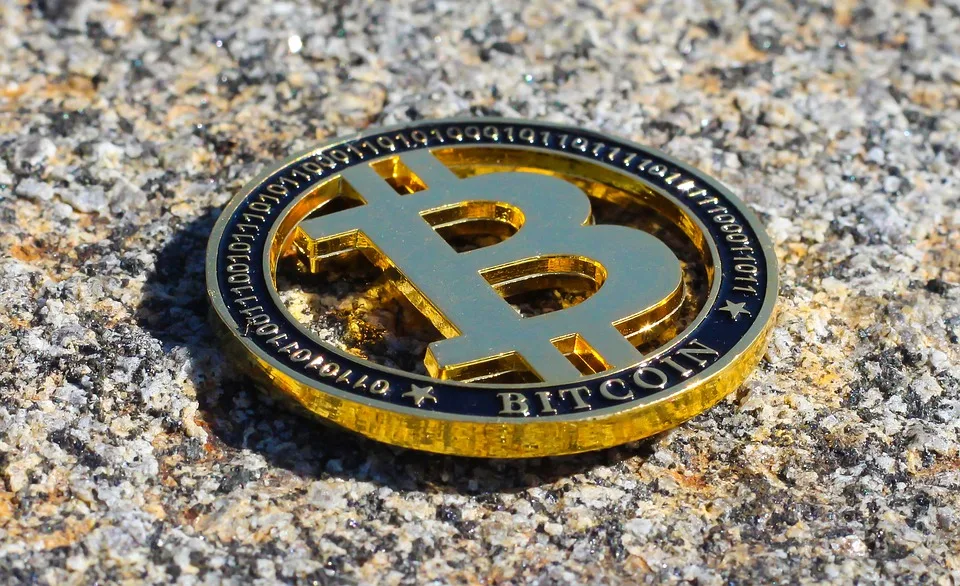Why There Will Never Be Another Bitcoin
Introduction
Bitcoin is more than just the first cryptocurrency; it’s a revolutionary creation that changed the entire concept of money, finance, and decentralized systems. But why is it that no other digital asset can ever replicate Bitcoin? Let’s dive deep into the core reasons.
The Genesis of Bitcoin
The Vision of Satoshi Nakamoto
Satoshi Nakamoto, the anonymous creator of Bitcoin, had a clear vision: to establish a decentralized, trustless system that would empower people globally. The whitepaper titled “Bitcoin: A Peer-to-Peer Electronic Cash System” detailed this vision, laying the groundwork for the decentralized future. Satoshi’s mysterious identity also adds a unique aura, making the Bitcoin origin story nearly mythical.
Bitcoin’s Unique Creation Story
Bitcoin wasn’t launched as a commercial product with a marketing team behind it. There were no initial coin offerings (ICOs), no venture capital, and no flashy PR campaigns. It began as a grassroots movement, driven purely by cypherpunks and early adopters who believed in the idea of financial freedom.
The Concept of Digital Scarcity
What Makes Bitcoin Scarce?
One of Bitcoin’s most revolutionary aspects is digital scarcity. Think about gold; there’s a limited amount on Earth, which gives it value. Bitcoin mimics this scarcity digitally. Unlike fiat currency, which can be printed endlessly, Bitcoin has a finite supply.
21 Million Cap Explained
Bitcoin’s total supply is capped at 21 million coins. Once the last Bitcoin is mined, that’s it; no more coins will ever be created. This mathematical cap ensures scarcity and, over time, has positioned Bitcoin as a strong store of value, akin to digital gold.
Bitcoin’s First-Mover Advantage
Pioneering Cryptocurrency
Bitcoin is the OG of the crypto world. Being the first has significant advantages. It set the standard, defined the protocols, and shaped the entire landscape. Even today, people often equate cryptocurrency with Bitcoin.
Established Network and Infrastructure
Bitcoin’s infrastructure, from its robust network of nodes to the sprawling ecosystem of wallets, exchanges, and mining operations, is unrivaled. Building such an expansive network from scratch is a herculean task that no competitor has managed to replicate successfully.
The Decentralization Factor
What Is True Decentralization?
Decentralization means there is no central authority controlling the system. Bitcoin epitomizes this ideal. Thousands of nodes spread across the world maintain and verify its blockchain, making it highly resilient to censorship or tampering.
How Bitcoin Achieved It
Bitcoin’s decentralization was organic, not forced. The network grew gradually as more individuals joined, attracted by its core principles. This distributed, global participation is what makes Bitcoin so robust and immutable.
The Immutability of the Bitcoin Blockchain
Understanding Immutability
Immutability means that once a transaction is confirmed, it cannot be changed. Bitcoin’s blockchain is designed to be a permanent record, resistant to manipulation. The longer a transaction sits in the blockchain, the harder it is to alter.
Why It Matters for Trust
Trust is essential in any financial system. Bitcoin’s unchangeable ledger ensures that users can always rely on the network’s integrity. This kind of trust is hard to build and even harder to replicate.
The Security of Bitcoin’s Network
Proof of Work Explained
Bitcoin’s security comes from its Proof of Work (PoW) consensus mechanism. In simple terms, miners use computational power to solve complex puzzles, securing the network and validating transactions. This system makes it extremely difficult for malicious actors to attack Bitcoin.
Why Bitcoin Is Considered So Secure
With the highest hashrate in the crypto world, Bitcoin’s network is nearly impenetrable. The cost of attacking the network is astronomically high, deterring potential threats. In essence, it’s like having a digital fortress built to withstand almost any assault.
The Role of Mining and Miners
Incentives for Miners
Miners play a crucial role in Bitcoin’s ecosystem. They are incentivized through block rewards and transaction fees, ensuring the network remains secure and operational. This economic model has proven effective over time.
Why Mining Keeps Bitcoin Secure
Mining isn’t just about creating new coins; it’s about maintaining the network’s health and security. The more miners there are, the more decentralized and secure Bitcoin becomes.
Bitcoin’s Influence on the Financial World
How Bitcoin Changed the Concept of Money
Before Bitcoin, digital currencies were either centralized or heavily regulated. Bitcoin changed the game, introducing the world to decentralized, digital money not tied to any government or institution. It has forced the financial world to reconsider the very nature of currency.
Bitcoin’s Impact on Decentralized Finance (DeFi)
Bitcoin laid the foundation for DeFi. Concepts like smart contracts and decentralized applications (DApps) owe a lot to the innovations Bitcoin brought to the world. While Ethereum and others are leading in DeFi, Bitcoin remains the original inspiration.
The Network Effect of Bitcoin
How Adoption Grows
The more people use Bitcoin, the stronger the network becomes. This phenomenon is called the network effect. As adoption increases, it becomes exponentially harder for competitors to catch up, reinforcing Bitcoin’s dominance.
Why Competing Coins Can’t Catch Up
Competing coins may offer flashy features, but they lack Bitcoin’s level of trust and adoption. Bitcoin’s reputation is built on years of resilience, and no amount of marketing can buy that.
Bitcoin’s Position as a Store of Value
Digital Gold Comparison
Bitcoin is often called “digital gold” because, like gold, it has proven to be a reliable store of value. Investors see Bitcoin as a hedge against economic uncertainty and inflation, making it a key asset in modern portfolios.
Hedge Against Inflation
Fiat currencies lose value over time due to inflation. Bitcoin’s scarcity and predictable issuance make it a strong hedge. This characteristic has attracted institutions and everyday savers alike.
Regulatory Recognition and Challenges
Why Governments Take Bitcoin Seriously
Bitcoin is no longer ignored by governments. Regulatory bodies worldwide acknowledge its significance, both as a potential threat and as a financial tool. The fact that it’s discussed in high-level economic forums is a testament to its impact.
Regulatory Milestones and Challenges
From the U.S. SEC to international banking authorities, Bitcoin has faced scrutiny. Yet, it has also received regulatory clarity in many regions, making it more appealing to institutional investors.
Bitcoin vs. Altcoins
How Other Cryptocurrencies Differ
Altcoins may offer innovations, but most are built on different principles or with varying degrees of centralization. None can match Bitcoin’s combination of security, decentralization, and proven history.
Why Altcoins Can’t Replace Bitcoin
Despite advances in blockchain technology, no altcoin has the same level of trust and adoption. Many serve niche purposes but don’t have the universal appeal or financial soundness of Bitcoin.
The Philosophical and Ideological Foundations
The Libertarian Ethos
Bitcoin’s philosophy appeals to libertarians and freedom advocates. It’s about breaking free from financial systems controlled by governments and big banks. This ideological foundation gives Bitcoin a purpose beyond mere speculation.
Bitcoin’s Role in Financial Freedom
Bitcoin empowers individuals by giving them control over their wealth. It’s the epitome of financial self-sovereignty, a concept that resonates with millions around the globe.
Conclusion
Bitcoin stands alone as a groundbreaking, world-changing technology. Its unique combination of scarcity, decentralization, security, and ideological underpinnings make it impossible to replicate. While many cryptocurrencies exist, none have matched the profound impact and trust that Bitcoin has earned. Simply put, there will never be another Bitcoin.
FAQs
1. Why can’t another cryptocurrency replicate Bitcoin’s success?
Bitcoin’s success comes from a blend of its first-mover advantage, network effects, decentralization, and trust built over years. Replicating this exact formula is nearly impossible.
2. What makes Bitcoin’s security model unique?
Bitcoin uses Proof of Work, which, combined with a massive network of miners, makes it extraordinarily secure. The cost of attacking the Bitcoin network is prohibitively high.
3. Is Bitcoin truly decentralized?
Yes, Bitcoin is one of the few cryptocurrencies that is genuinely decentralized. Thousands of nodes worldwide verify and maintain its blockchain, making it resistant to censorship and centralized control.
4. How does Bitcoin maintain its scarcity?
Bitcoin has a hard cap of 21 million coins, enforced by its code. This scarcity is built into the network’s protocol and cannot be altered.
5. Will Bitcoin’s dominance ever fade?
While new technologies emerge, Bitcoin’s established reputation and proven security make it unlikely to be dethroned as the leading cryptocurrency.


